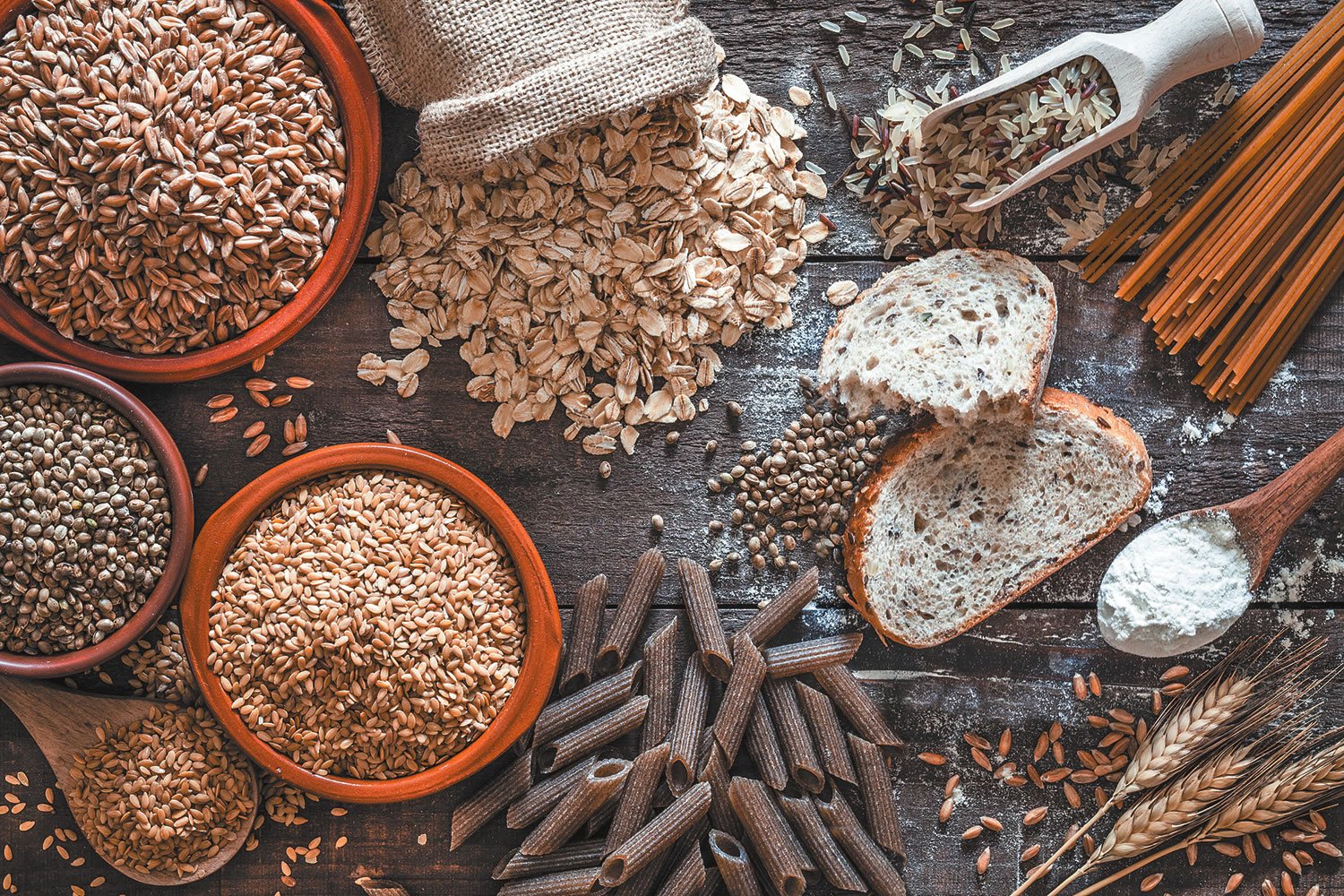There seems to be no limit to the promises on the Internet for foods and dietary supplements that allegedly “boost” or “support” your immune function. There’s more than a grain of scientific truth in it, and the prospect of enhancing immune function with nutrition is a busy area of research—some of it by scientists at Tufts’ Human Nutrition Research Center on Aging (HNRCA) and Friedman School of Nutrition Science and Policy.

Image © alffalff | Getty Images
We know that nutrient deficiencies weaken the immune system and leave people vulnerable to illness. But if your nutrient intakes are adequate, can certain foods and nutritional supplements still improve immune function?
There is no definitive answer yet to this question—although there is reason for optimism. “I would not say it’s entirely an open question,” says Simin Nikbin Meydani, PhD, senior scientist and director of the Tufts’ HNRCA Nutritional Immunology Laboratory. “We do have promising evidence from animal studies and some human clinical trials that specific nutrients might be able to help strengthen an aging immune system. But we need additional research.”
Aging Immune Army: It’s well known that the immune system weakens with age. There’s even a word for it: immunosenescence. The causes of immunosenescence remain incompletely understood.
One sign of an aging immune system is a relatively weak response to flu vaccination: Older adults don’t produce as many antibodies to fight off a future infection, compared with younger people. Waning immune defenses also leave older adults more vulnerable to other infections as well as cancer.
Another key age-related change in immune function concerns T cells (T lymphocytes, a type of white blood cell). Produced in the thymus gland, an array of different kinds of T cells help protect the body from disease-causing microbes and other pathogens. Over a lifetime,
T cells lose their ability to function at full strength. But this doesn’t leave you helpless. A nutrient dense diet can help you to make the best of what you’ve got.
Nutrition and Immune Function: If you google “natural remedies to boost your immune system,” you’ll see a quarter of a million hits—many promoting a wide variety of herbs and nutritional supplements that claim to have beneficial effects on immunity.
Some of these promises have a basis in laboratory and animal studies, but there have been comparatively fewer clinical trials in humans. Determining whether certain foods or nutrients boost immune function enough to reduce illness in humans has been challenging.
But researchers have found hints at how healthy foods may bolster the immune system. In a clinical trial, Meydani and colleagues explored the links between whole grain consumption, chronic inflammation, gut health and immune function. Whole grains, when substituted for refined grains, are associated with better health. Why?
Observational studies have linked consumption of whole grains to reduced chronic inflammation that is thought to increase the risk for some diseases. Eating more whole grains is also associated with helping to maintain a normal weight. But this has complicated trials in humans to measure whole grains’ effect on inflammation.
“We wanted to know if there is any additional benefit from whole grains that is not related to weight loss,” Meydani says. “So we gave study participants whole grain instead of refined grains, but made sure that they consumed the same amount of calories. As a result you didn’t see a difference in weight gain between the two groups consuming whole grains versus refined grains.”
Taking weight loss out of the equation allowed the trial to highlight the effects of whole grains on inflammation. The researchers also saw this as a way to investigate effects of whole grain consumption on the immune system, which is less able to mount a defense in the presence of chronic inflammation.

whole grain foods
Modest Whole-Grain Boost: In the 6-week trial, middle-aged men and post-menopausal women were assigned at random to either a diet containing only whole grains or refined grains. The participants picked up pre-prepared meals three times each week and ate them at home.
By the end of the study period, the effects of consuming only whole grains were not as strong as hoped. “We saw some modest effect on immune function and changes in the gut microbiota, but the effect was not as much as we had expected,” Meydani says. Markers of chronic inflammation decreased only slightly, although that change was associated with how closely participants in the whole-grain group adhered to their diet.
Although the overall effect of whole grains on immune function was also modest, the study did pick up an increase in “memory” T cells. These allow the immune system to recognize past attackers—like bacteria and viruses—so the body can mount a faster and stronger immune response.
So, at least in this study, increased consumption of whole grains by itself didn’t have a dramatic effect on inflammation or immune function. The beneficial effect of whole grains for maintaining a healthy weight may be more important.

Image © gchutka | Getty Images
Inflammation and Immunity: Jeffrey B. Blumberg, PhD, director of the Tufts’ HNRCA Antioxidants Research Laboratory, explains that inflammation and immune function work hand in hand. Research has linked a category of plant chemicals called flavonoids to less chronic inflammation.
Flavonoids are found in a wide variety of foods associated with healthy dietary patterns, including the Mediterranean eating style and the blood-pressure-lowering DASH diet. Rich flavonoid sources include tea, onions, broccoli, parsley, celery, citrus fruits, cocoa, apples, grapes, red wine, dark-colored berries and soy.
If inflammation is too high, Blumberg says, it can hobble the immune system. Flavonoid rich foods, by moderating the inflammatory response, could help the immune system to be more effective at fighting infection and other challenges to the body
“Although the cause-and-effect link between food and immune function is still under investigation, a variety of these nutrients in a healthy dietary pattern supports good health in many important ways—possibly including support for an effective immune response,” Blumberg says.
Uncertainty About Supplements: The most uncertain corner of research on nutrients and immune function concerns the potential benefits of supplementing your diet above the recommended minimums established by the National Academy of Sciences and expressed as Recommended Dietary Allowances (RDAs), the daily level of intake sufficient to meet the nutrient requirements of nearly all healthy people.
Many foods provide vitamin E, including nuts, seeds, and vegetable oils—all associated with healthy fats and dietary patterns. Animal and laboratory studies suggest that vitamin E may enhance function of T cells in response to infections. “In research on the incidence of infections in nursing homes, vitamin E was protective,” Meydani says.
But it would be a mistake, Meydani emphasizes, to think that the more you take vitamins the better your immune system will work. Human studies, in which we tested several levels of vitamin E suggest that, for example, in older people, 200 milligrams per day of vitamin E is optimal, and more than that did not provide additional benefit.
In short, more is not necessarily better when it comes to nutrients and immune function. Further studies, Meydani says, are needed to identify the levels of other essential nutrients that optimize immune function in older adults.
For the time being, however, Meydani says she is confident that taking adequate levels of nutrients and maintaining a healthy weight is a good bet for supporting immune function, given the relationship between obesity and chronic inflammation.
“Obesity is, in a way, expedited aging because it’s associated with the inflammation and suppressed immunity that we see in older people,” Meydani says.
As for specific nutrients that some studies have linked to better immune function, they are already provided by the fruits, vegetables, nuts and seeds, and whole grains at the heart of healthy dietary patterns.
A healthy diet and lifestyle supports your immune defenses:
-Maintain a healthy weight. Being overweight is associated with chronic inflammation in the body, which may adversely affect immune function.
-Maintain a healthy dietary pattern. That pattern should include whole fruits and vegetables, nuts and seeds, whole grains, and healthy unsaturated fats, and be lower in refined grains and added sugar.






















When will results be available of longitudinal studies conducted on humans by reliable researchers to determine with certainty whether certain foods and nutritional supplements improve immune function?
The following statements are very definitive.
“A nutrient dense diet can help you to make the best of what you’ve got.”
“The beneficial effect of whole grains for maintaining a healthy weight may be more important.”
“Jeffrey B. Blumberg, PhD, director of the Tufts’ HNRCA Antioxidants Research Laboratory, explains that inflammation and immune function work hand in hand.”
“Rich flavonoid sources include tea, onions, broccoli, parsley, celery, citrus fruits, cocoa, apples, grapes, red wine, dark-colored berries and soy.”
“…….a variety of these nutrients in a healthy dietary pattern supports good health in many important ways…….”
“Many foods provide vitamin E, including nuts, seeds, and vegetable oils—all associated with healthy fats and dietary patterns.”
“…….in older people, 200 milligrams per day of vitamin E is optimal, and more than that did not provide additional benefit.”
“Meydani says she is confident that taking adequate levels of nutrients and maintaining a healthy weight is a good bet for supporting immune function, given the relationship between obesity and chronic inflammation.” Why equivocation? Why is not doing as Meydani states, essential”?
“Take Charge!
A healthy diet and lifestyle supports your immune defenses:
-Maintain a healthy weight. Being overweight is associated with chronic inflammation in the body, which may adversely affect immune function.
-Maintain a healthy dietary pattern. That pattern should include whole fruits and vegetables, nuts and seeds, whole grains, and healthy unsaturated fats, and be lower in refined grains and added sugar.”
Martin (I am an 80 year old, white male.)
6 wks is not rally long enough to establish a good understanding of the effect. I have a weak immune system from many reasons and it has taken many years with IV immunoglobulin theraphy to get my system to where I can say I am doing better. I still have a ways to go but age is hindering any major improvement [76]